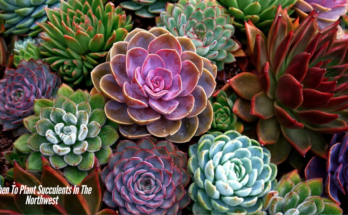Greetings from the “How to Grow Venus Flytrap from Seeds?” You’ll have an amazing experience if you’re a garden enthusiast who wants to raise your fascinating carnivorous marvels.
I’ll be your guide as we walk through the systematic process of growing Venus flytraps from seeds in this guide. Let’s explore the fulfilling world of caring for these unusual plants and see how fascinatingly they grow!
How To Grow Venus Flytrap from Seeds?
To grow Venus flytrap from seeds, begin by acquiring fresh seeds. Plant them in a mixture of peat moss and sand. Maintain a consistently moist environment by using a tray covered with plastic.
Ensure the soil stays damp but not waterlogged. Germination typically takes 2-4 weeks. Once sprouts appear, provide ample sunlight, ideally 12 hours daily.
Keep the soil consistently moist and avoid fertilizers. As your tiny flytraps grow, be patient—they’re slow starters. With care and attention, you’ll witness the fascinating journey from seed to full-grown Venus flytrap!
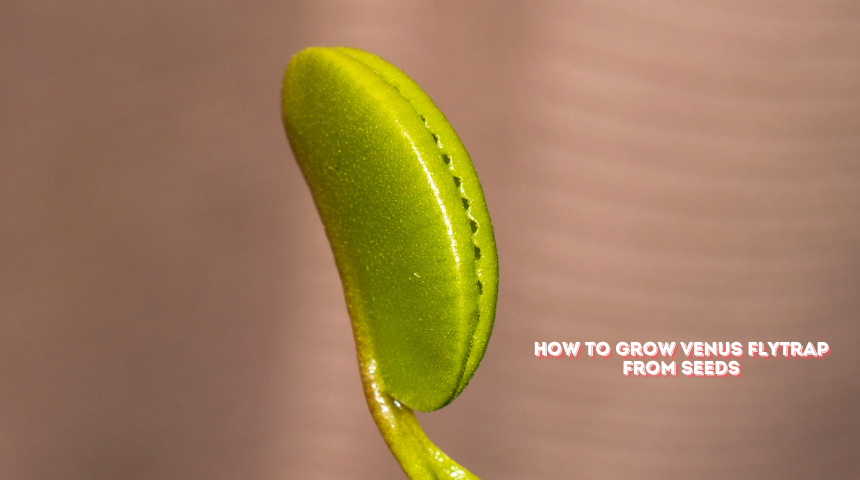
Here are some ideas on how to grow Venus Flytrap from seed.
1. Seed Selection
When selecting Venus flytrap seeds, opt for those that are fresh and from a reputable source. Check for their viability to ensure a successful germination process.
2. Planting Medium
Create an optimal growing environment by preparing a planting medium consisting of a mix of peat moss and sand. This combination provides the right balance of nutrients and drainage for the seeds.
3. Sowing Process
Carefully sow the Venus flytrap seeds on the surface of the prepared soil. Gently press them into the soil without burying them, allowing for proper contact with the planting medium.
4. Moisture Management
Maintain a consistently moist atmosphere for the seeds to encourage germination. Cover the planting tray with plastic to retain moisture, mimicking the conditions necessary for the initial stages of growth.
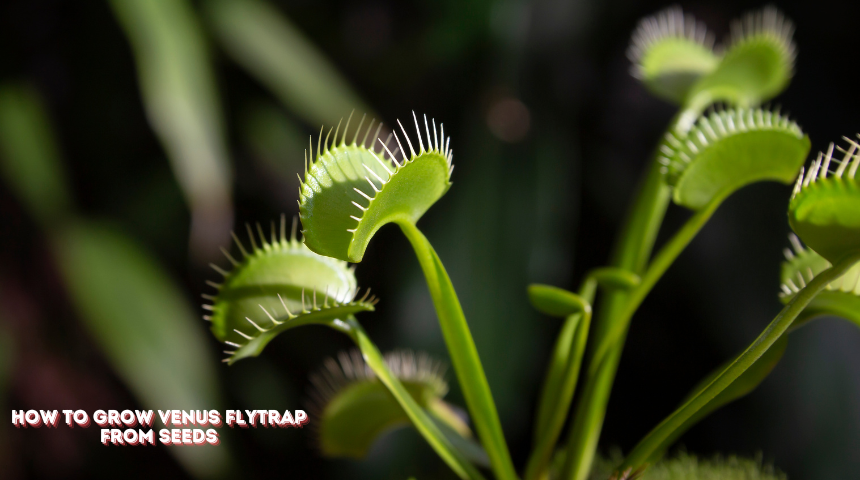
5. Germination Period
Exercise patience during the 2–4-week germination period. It’s essential to keep the soil consistently damp, but not waterlogged, to support the emergence of healthy seedlings.
6. Sunlight Exposure
Expose the germinated sprouts to at least 12 hours of direct sunlight daily. Venus flytraps thrive in well-lit conditions, and sufficient sunlight is crucial for their overall development.
7. Watering Technique
Implement a careful watering technique to maintain the ideal moisture level. While it’s crucial to keep the soil consistently moist, avoid overwatering to prevent waterlogging.
8. Fertilizer Avoidance
Resist the temptation to use fertilizers. Venus flytraps are unique in that they extract nutrients from captured insects, and applying additional fertilizers can be detrimental to their growth.
9. Slow Growth Understanding
Acknowledge and understand the slow growth rate of Venus flytraps. These captivating plants take time to establish and develop into healthy, thriving specimens.
10. Nurturing Patience
Nurture your Venus flytraps with patience and attentive care. Witness the transformation from tiny sprouts to full-grown, fascinating plants, embracing the rewarding journey of cultivating these captivating carnivorous wonders.
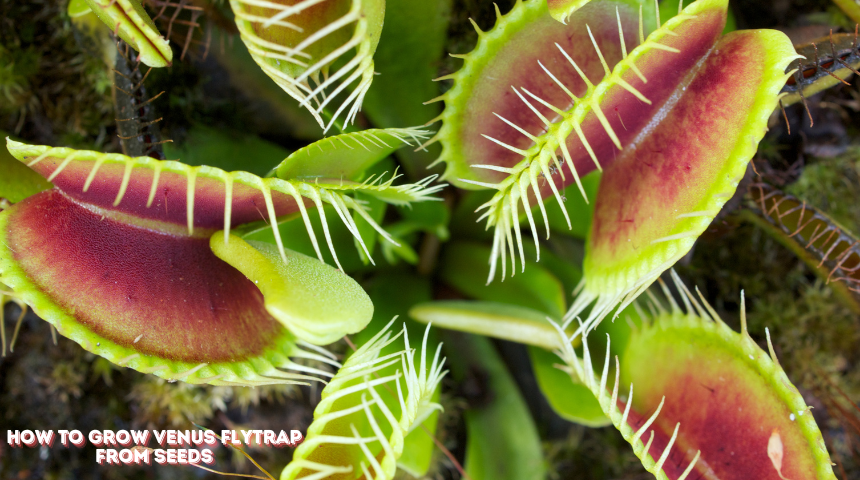
Venus Flytrap Extra Care
Caring for your Venus flytrap requires a thoughtful approach to mimic its natural habitat.
Follow these essential tips to ensure your carnivorous companion thrives.
1. Soil Selection
Opt for a well-draining, acidic soil mix, such as a combination of sphagnum moss and perlite. This replicates the nutrient-poor conditions Venus flytraps prefer.
2. Watering Technique
Keep the soil consistently moist with distilled water or rainwater. Avoid tap water, as the minerals can harm the sensitive roots.
3. Humidity Control
Maintain a humid environment by placing the pot on a tray filled with water. This mimics the swampy conditions Venus flytraps naturally inhabit.
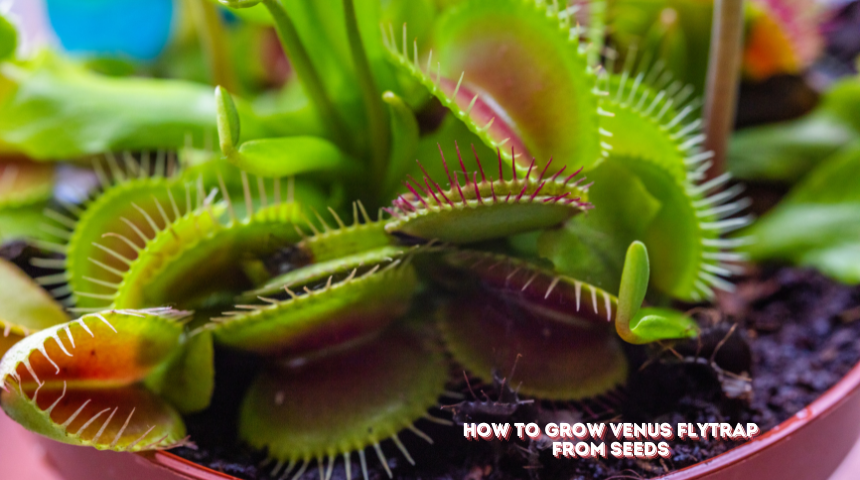
4. Sunlight Exposure
Provide ample sunlight, ideally 12 hours a day. Venus flytraps thrive in bright, indirect light. A sunny windowsill or a location with filtered sunlight is ideal.
5. Feeding Frequency
Allow your Venus flytrap to capture insects naturally. While it’s tempting to feed them, too much stimulation can weaken the plant. Only supplement with insects if absolutely necessary.
6. Dormancy Period
Acknowledge and simulate the winter dormancy period. Reduce watering and place the plant in a cooler environment (around 35-50°F or 1-10°C) for about 2-3 months.
7. Pruning Dead Leaves
Regularly trim dead or blackened leaves to encourage new growth. Be cautious not to damage healthy leaves during the process.
8. Container Size
Choose a pot with adequate drainage holes and a diameter that accommodates the plant’s size. Transplant if the roots outgrow the current container.
9. Pest Management
Keep an eye out for pests like aphids or spider mites. Gently wipe the leaves with a damp cloth to remove any unwanted visitors.
10. Patience and Observation
Finally, be patient and observe your Venus flytrap. Each plant is unique, and understanding its individual needs is key to successful care. Enjoy the fascinating journey of nurturing this captivating carnivorous plant!
FAQ
Where can I get Venus flytrap seeds?
Obtain fresh Venus flytrap seeds from reputable online suppliers or specialized plant nurseries.
What soil is best for Venus flytrap seeds?
Use a well-draining mix of “peat moss and sand” to create an acidic environment suitable for Venus flytrap germination.
How often should I water Venus flytrap seeds?
Keep the soil consistently moist, but avoid waterlogging. Use distilled or rainwater, steering clear of tap water.
Can I use artificial light for germination?
While natural sunlight is ideal, you can use fluorescent or LED grow lights for at least 12 hours a day if unavailable.
Do Venus flytraps require fertilizers during seed growth?
No, avoid fertilizers. Venus flytraps extract nutrients from captured insects, and additional fertilizers can harm their growth.
Conclusion
Congratulations, fellow plant enthusiasts, to finish on the journey of growing Venus flytrap from seeds! The key to success lies in your patience and dedication to providing the right conditions for these captivating carnivorous wonders.
Selecting quality seeds is the first step toward a thriving Venus flytrap. The careful balance of peat moss and sand in your planting medium sets the stage for successful germination.
Maintaining a consistently moist environment and exposing the tiny sprouts to at least 12 hours of sunlight daily is crucial throughout the process. As your Venus flytraps grow, resist the urge to use fertilizers, and embrace the slow but rewarding journey.
Witness the fascinating transformation from seeds to full-grown wonders, all while adhering to a regimen of proper care and attention. Now, armed with the knowledge shared in this guide, nurture your Venus flytraps with confidence.
Each step, from seed selection to eventual growth, contributes to the unique story of your plants. Happy growing, and may your Venus flytraps flourish in all their carnivorous glory!



